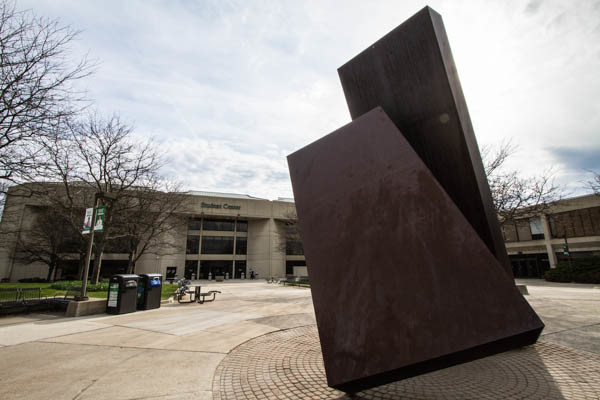BY MADI TORTORA
Contributor
In 1938, President Franklin D. Roosevelt signed the Fair Labor Standards Act that set the minimum hourly wage at 25 cents. Originally, minimum wage was established to set the basic living standard of people at the time, meaning that it was, at first, considered a living wage. Now, 77 years later, minimum wage has gone up significantly—along with the cost of living in general.
David Wildfong, professional services faculty member at Washtenaw Community College and student advisor for the Career Services Department, helps students who are looking for both full and part-time jobs.
“We do see a lot of students who are looking for entry level positions, for example, in whatever industry that is out there, and we work with companies that have positions in customer service, retail, food service, and those types of traditional college student first-time jobs,” Wildfong said. “Typically, those are the positions that may be close to minimum wage.”
According to the Bureau of Labor Statistics, three-quarters of minimum wage earners are 20 or more years old. This is the average age of college students.
“It’s difficult for a lot of individuals in today’s market to make ends meet, and it depends going from student to student (whether a college student can live on minimum wage),” Wildfong said. “There are full-time, minimum wage or higher jobs out there, and it can be difficult, you know, if you have a family or whatever the situation a student might be facing, to make a go of it. A lot of students have to live very lean.”
Following Jenelle Franklin, 24-year-old WCC journalism major, for a day shows how hard work can cause success. Franklin explained her busiest day, which happened to be a Tuesday.
“A typical Tuesday for me starts when I open the gas station at 6:30 a.m. Then, I work there doing gas station attendant and receptionist for the auto shop attached, and they open at 9 a.m.,” Franklin said. “ I do that until 1 p.m, and then from there I go out to WCC for my Comp II class from 2-3:30 p.m. After that, I go to Saline, and work at the salon as a receptionist from 4-9 p.m. Every other Tuesday, I have one client where I start at 9:00 p.m. and she gets an hour-and-a-half massage, so I’m done around 10:30 p.m.”
Franklin also lives in an apartment with a roommate, and has a cat. Working on minimum wage while being a full-time student requires some sacrifices, which Franklin experiences first hand.
“I don’t have the freedom to travel as much as I’d like. That’s a pretty big deal,” Franklin said. “I always make sure I take my spare time when it’s available, and I always do family first and then friends second. With school cutting into it, my friends can sometimes get on the back-burner. But me and my roommate have gotten closer, which is good, but we aren’t really getting out of the apartment much.”
Cory Carmack, an 18-year-old computer engineering student at WCC, understands the issues that come with being a student and having to deal with money struggles and time management.
“There’s a lot to do (when you have school and a job). Basically I’m at work every day that I’m not at school, and some days I’m even doing both,” Carmack said. “Things are very expensive. Anybody who is starting a family and living on minimum wage just can’t do that. Usually people who are going to school on top of working get less hours, and that’s like me, and I definitely don’t make enough to live on.”
Money struggles are a very common issue with college students. To be stable money-wise can mean living on the bare necessities.
“I’m divorced. I got divorced at 21, and I started over with nothing and had to move back into my parents house,” Franklin said. “After that I moved back out, and starting completely over has really been one of those things where I don’t really mind my sacrifices too much, because I’m looking forward to my education.”
Establishing whether or not minimum wage can support someone to live is a debate that may go on forever.
“I don’t think it’s possible (for someone to live on minimum wage) because I think that with minimum wage, they don’t account for the fact that you’re supposed to be happy in life. I feel like minimum wage leaves you at a struggle point,” Franklin said. “You’re always trying to achieve more just to feel like you’re getting yourself stable-not even getting yourself ahead, just maintaining being stable.”

